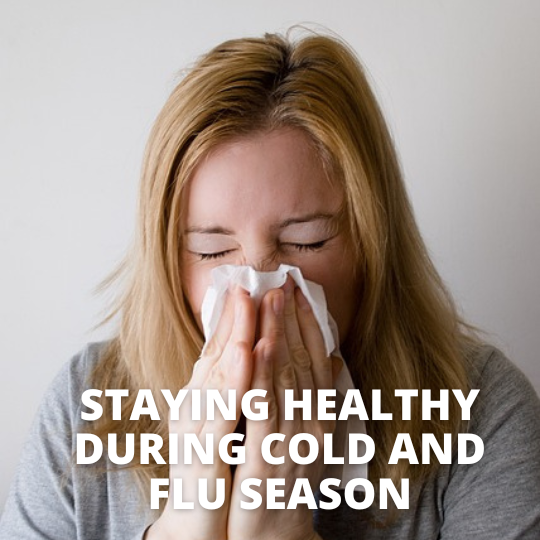How to Stay Healthy During Cold and Flu Season
Every year the sniffles make their rounds. Skip the “miracle cures” and use these evidence-based steps to stay strong, recover faster, and keep your household healthy during cold and flu season.
1) Get Your Flu Shot: Your Best Defense
An annual flu shot is one of the most effective ways to reduce your risk of severe illness from influenza. While it won’t prevent every cold or virus, it can lessen your chances of getting the flu and may reduce the severity and duration if you do get sick.
- Ideal timing: early in the season (or as soon as available).
- Who should get it: most adults and children over 6 months (follow local guidelines and speak with your clinician).
- Note: people with specific medical conditions should confirm suitability with their healthcare provider.
2) Cold vs. Flu vs. “Just a Virus”: Know the Difference
Understanding symptoms helps you respond appropriately and stay healthy during cold and flu season. Colds are usually milder; the flu tends to hit faster and harder.
| Symptom | Common Cold | Flu (Influenza) |
|---|---|---|
| Onset | Gradual | Sudden (within hours) |
| Fever | Rare or low-grade | Moderate to high, common |
| Aches & chills | Mild | Often severe |
| Sore throat / runny nose | Very common | Possible, but less prominent |
| Fatigue | Mild | Marked fatigue, exhaustion |
| Treatment window | Supportive care | Antivirals may help if started early (per clinician) |
3) Treat Symptoms—Safely and Smartly
Over-the-counter (OTC) remedies can ease discomfort, but they don’t “kill” the virus. Use them to manage symptoms while your immune system clears the infection.
- Congestion: saline sprays/rinses, short-term decongestants as directed.
- Sore throat: warm salt-water gargles, lozenges, honey in warm tea (not for children under 1).
- Pain/fever: acetaminophen or ibuprofen as labeled (avoid duplicates in multi-symptom products).
- Read labels: check for interactions, underlying conditions, and age-appropriate dosing.
This is general information, not medical advice. If you are pregnant, have chronic conditions, or take prescription medication, consult your healthcare professional before using OTC medicines.
4) Rest, Hydrate, and Let Your Body Heal
Your body’s cough, sneezing, and runny nose help clear pathogens. Support recovery with deliberate rest and fluids.
- Sleep: aim for 7–9 hours; add short naps when sick.
- Hydration: water, broths, and warm fluids to thin mucus.
- Humidifier: adds moisture that may ease cough/congestion.
- Gentle nutrition: soups, fruits, and protein to sustain energy.
5) Daily Prevention Habits to Stay Healthy During Cold and Flu
- Hand hygiene: wash with soap 20 seconds or use an alcohol-based sanitizer.
- Avoid face touching: especially eyes, nose, mouth.
- Cover coughs/sneezes: use a tissue or elbow; dispose and wash hands.
- Ventilation: open windows or use air filtration where possible.
- Stay home when ill: rest and reduce spread to others.
- Clean high-touch surfaces: phones, doorknobs, keyboards.
When to See a Healthcare Professional
Seek care promptly if you experience: high or persistent fever, shortness of breath or chest pain, confusion, severe dehydration, worsening symptoms after initial improvement, or if you’re in a high-risk group (young children, older adults, pregnant people, or those with chronic illnesses).
FAQs: Staying Healthy During Cold and Flu Season
Does a flu shot prevent colds?
No. It targets influenza viruses, not the many viruses that cause the common cold. Still, it’s your best defense against the flu.
What can I take at the first sign of symptoms?
Start with rest, fluids, and soothing remedies (saline, honey/tea). Use OTC pain/fever reducers as directed. If you’re high-risk or symptoms escalate quickly, contact a clinician—early antivirals may be considered for suspected flu.
How long should I stay home when sick?
Stay home while feverish and for at least 24 hours after fever resolves without fever-reducing meds. Follow local public health guidance and workplace/school policies.

